A message from the Chair
We can certainly be proud of the work of the ACT Association of Independent Schools and of the support it provides to Members.

We can certainly be proud of the work of the ACT Association of Independent Schools and of the support it provides to Members.

Throughout 2019, the Association has continued to promote the AISACT mission on behalf of Member Schools of the advancement of educational excellence through the promotion of a strong independent sector in the ACT.

We can certainly be proud of the work of the ACT Association of Independent Schools and of the support it provides to Members.
The work of the Association continued at a swift pace during 2019. As I acknowledged late last year, the continued dialogue over school funding is vitally important and impactful to Independent schools here in the ACT. The work on how the Capacity to Contribute for schools is calculated is nearer to conclusion, and schools eagerly await notification on how any changes will impact their communities in the coming years.
Articulating the views of the ACT Independent School sector, and advocating on its behalf, remains a large part of the Association’s work. Beyond this, and as its core business, is support for the work of the eighteen member schools in Canberra which educate nearly 15,000 students.
The Association remains committed to making meaningful contributions to the government’s education policies, with our focus always being on ensuring high quality education throughout the Territory, irrespective of schooling sector. There is an expansive list of current and emerging issues as the agenda of the education landscape continues to grow at both the local and national level.
The Association has a proven track record of working with Member Schools in the advancement of education outcomes, both in each Member School, and across the jurisdiction. As always, Members can be assured, and Government can expect, that the Association will continue to advocate for Independent schools and the excellent education, choice and opportunity they provide to the Canberra community.
The Association always seeks to work in close collaboration with both the Education Directorate and Catholic Education to bring about enhanced educational outcomes in the ACT and we will continue to work with others to ensure all students can achieve excellence in their individual pursuits.
We often describe the Association as a boutique organisation. Our great advantage is that we can get everyone together at the same time to discuss and energetically explore the differing views of Members, such that everyone is able to express their view and explore options. This robustness in interrogating issues acknowledges the strength of active commitment and ensures we can focus on achieving the best outcomes for the Association and the Independent sector.
The Association can again consider its achievements during 2019 with a great degree of satisfaction. Throughout the year, the AISACT Leadership Breakfast series continued to provide a forum for those in all ACT education sectors, enabling a broad range of people to come together to hear from thoughtful leaders and innovators from diverse backgrounds. I am pleased to say that these events will continue in 2020.
This year’s Colloquium: Impactful Change through Instructional Coaching, with Jim Knight and Chris Munro, was again a cross-sectoral event, with teachers from so many schools across the ACT and beyond participating on the day.
The Association always seeks to work in close collaboration with both the Education Directorate and Catholic Education to bring about enhanced educational outcomes in the ACT.
The capacity of the Office to develop initiatives for Members to engage with and to provide support and advice is greatly valued. The amazing breadth of professional learning programs offered during 2019 is to be commended. From a range of Curriculum foci to leadership opportunities, Wellbeing programs for principals and staff, supporting students and action research projects, in addition a suite of governance courses, and so much more. I’ll just note here that in a first for the Association, the action research projects will be published in a peer reviewed journal in early 2020.
Another successful Celebrating Teaching & Learning event was held for staff from our schools. Participants heard colleagues from Member schools who shared projects, programs and innovations that have been implemented. This event which has grown each year was well attended and provided a great opportunity to showcase initiative and projects which have been impactful in our schools.
I extend my appreciation and thanks to the Members of AISACT for the rigorous and collegial way in which they have approached the governance of the Association throughout the year, and to the AISACT Executive - Deputy Chair Justin Garrick, Steven Bowers, Heather Walsh, Christine Worth, Samantha Brady, Erik Hofsink, Ian Hewitt and Maureen Hartung – whose commitment to the work of the Association is to be acknowledged and congratulated. I also thank the expert staff from schools who volunteer their time to advance the work of the Executive Subcommittees.
As Chair, I also take the opportunity here to recognise and acknowledge a number of our Principals from Member Schools who have moved on during the year: Christine Lucas, Asma Ahmad, Anthony Vandermolen and Siddiq Buckley I sincerely thank them for their contribution to the Association and, of course, to their schools.
It has been a very busy year once again and the coming year will be equally as challenging. We look forward to meeting those challenges as an Association, and as individual schools.

Throughout 2019, the Association has continued to promote the AISACT mission on behalf of Member Schools of the advancement of educational excellence through the promotion of a strong independent sector in the ACT.
Throughout 2019, and in most cases for many years previously, the Association has had the privilege of working with a broad range of groups and organisations. I would like to take this opportunity to acknowledge these organisations and people as all of these organisations, and the people who work for them, are very important to the work of the Association, and we recognise and thank them:
There is so much to be excited about working in this space! The variety and purpose of the working week is extraordinary.
It is also my very great privilege to work beside and with such an exceptional team who are the staff of AISACT and who, through their expertise and enthusiasm, expertly support our Member schools.
A few examples of the collaboration and partnerships are articulated below.
Of course, the real heart of the Association is its members.
There is so much to be excited about working in this space! The variety and purpose of the working week is extraordinary: professional learning; events; school visits; advocacy; meetings......meetings......my diary sometimes looks like a haven for acronyms – ISCA, TQI, BSSS, ESO, CEO, APFACTS, BGA, AITSL, ACATA, ITEC, TLC......that’s Transport Liaison Committee......and C2C, which is the component of funding we are chatting about at the moment......which is complex......or to quote that extraordinary broadcaster Ed Murrow: “Anyone who isn’t confused really doesn’t understand the situation”.
I often say that it is my privilege to serve as the Executive Director for AISACT – and it most certainly is! It is also my very great privilege to work beside and with such an exceptional team who are the staff of AISACT and who, through their expertise and enthusiasm, expertly support our Member schools. It may be a small number, but they pack one hell of a punch! The work of Serita Cordeiro, Kath Morwitch, Joanne Garrisson and Sue Roche is to be commended.
The Association of Independent Schools of the ACT (AISACT) is the peak body representing the ACT Independent School sector. Our mission is the advancement of educational excellence through the promotion of a strong independent school sector in the ACT.
AISACT represents and advocates for the interests of all independent schools in the ACT, consulting with governments, statutory authorities and a wide range of other educational stakeholders. In addition the Association provides a number of services and professional learning opportunities throughout the year to Member schools. This professional learning covers a diverse range of topics including Leadership, Curriculum, Governance, Coaching, and Wellbeing and student engagement.
All students, irrespective of where they are educated, are entitled to a high quality education.
The AISACT is guided by the following key principles when representing the views of the diverse group of Member Schools:
The Association has 18 Member schools, which are a diverse group of non-government schools serving a range of communities. The schools are of different types, sizes, religious affiliations and educational philosophies and are a vital part of the ACT education system.
All independent schools in the ACT are Members of the AISACT with each independent schools being a separate and autonomous not for profit entity with an independent governing body.
While all schools are required to comply with relevant legislation with regard to alignment with the Australian Curriculum, individual schools will make choices about the breadth of the curriculum offered and the subject choices provided within their context.
In 2019 Member schools educated over 14,912 students with enrolments ranging from 25 to over 2000 students. In 2019 students in Member schools made up 19% of the total student population in the ACT. Enrolment in Canberra’s Independent schools has historically been very strong and have seen a 21% increase in student enrolment over the past 10 years.
The Association also provided its two Associate Member schools with support and opportunities in 2019. These schools have been able to access professional learning in addition to other services that the Association offered. They will continue to be a vital part of the Association and its strategic direction.

The Association’s General Meeting is comprised of nominated representatives from each of the 18 Member schools. Each school is able to nominate two representatives, one of whom must be the Principal, and the other being a representative of the School’s governing body.
In addition to the Member school representatives, the AISACT invites its Associate Members to participate in the Association activities and meetings.
The Association extends the invitation to be an observer to the Association of Parents and Friends of ACT Schools (APFACTS). APFACTS is a partner of the Association and plays a pivotal part in supporting the parents.
The General Meeting membership elects the members to the Executive Committee. Members of the Executive Committee considered the wide range of strategic impacts to the Association, the Association’s best response to those impacts on behalf of Member schools, and the strategic oversight of the services and new initiatives to support to Member and Association Member schools.
AISACT Executive Committee membership details are provided in the Appendix.
The Executive Committee supported the role of four strategic subcommittees: the Finance Subcommittee, the Teaching and Learning Subcommittee and the Education Support Subcommittee and an Early Years Learning Subcommittee. All subcommittees continued their work to provide advice on strategies, opportunities and approaches to the Executive Committee to achieve the Association’s key directions. In addition an executive committee working group has continued to consider changes to relevant Legislation during 2019.
AISACT Executive Subcommittee membership details are provided in the Appendix.
The Office of AISACT continued to develop and provide Member schools with opportunities and support in line with the AISACT Strategic Intent which was endorsed by the Executive committee to continue in 2019. Member Schools provided the Office with feedback and direction via the AISACT Services and Functions annual survey.
As the representative body for the Independent School sector, the Association represents the sector’s view to Territory and Federal governments on matters of significance and importance in education and in independent schools.
The Association continued to work closely with the ACT Minister for Education and Early Childhood, Ms Yvette Berry MLA, ministerial advisors, and senior officials from the ACT Education Directorate. The Association also worked closely with The Archdiocese of Canberra and Goulburn, Catholic Education to continue to advance the specific issues relating to Non-Government Schools in the ACT.
The Association, through Principals, Board Members, office staff, and teachers from Member schools, represents the interests of Independent Schools, Independent Education, and the Association on a wide variety of committees, consultative groups and boards.
In 2019 the Association of Independent schools was invited to have representative on the Senior Practitioners Committee and working groups and the Associations involvement on committees and groups includes:
During 2019 the work of AISACT has been supported by a range of partners. We thank and appreciate the ongoing role of our major partner NAB Education which allows the Association to continue to deliver programs and events, and to develop new ones in response to member feedback. In addition we appreciate the partnership with Complispace, AON, Nexia Australia and NGS Super.
The Association’s Strategic Intent has guided the decisions and work of the Association and articulates the key directions needed to achieve the Association’s goals. The Strategic Intent is supported by a number of operational plans.
This report outlines the key activities of the Association to meet Member School needs and to positively advance and further develop the capacity of Independent schools in the ACT to meet their community’s expectations. This work and direction was greatly supported by the Commonwealths priorities through the Non-government Reform Support Fund.
The AISACT provided a strong supportive range of programs beginning in January 2019. Building on previous work on the quality assurance, moderation and support for the continued improvement of Nationally Consistent Collection of Data on School Students with Disability the focus was on leadership development in addition to the provision of expert advice from an experienced staff member providing both hotline support and advice through visits at individual schools. Professional development focussed on the collection of evidence and data, and developing programs to ensure that the support and planning for individual students is at the centre of everything schools do to achieve the best possible learning outcomes for students.
For the implementation of online delivery of the National Assessment program, AISACT continued to work to ensure that all 18 Member Schools have access to advice and assistance with regard to their readiness for the implementation of the online delivery of the National Assessment program.
The priority addressing the improvement of governance and financial management practices in non-government schools saw the provision of a program provided by the Australian Institute of Company Directors available to all member schools Board Directors . These short courses and sessions addressed the practice, monitoring, planning and sustaining of good governance.
AISACT continued to provide specialist professional learning programs as identified in the Bilateral Agreement addressing Australian Curriculum, including general capabilities, reporting against the achievement standards, School Leadership, STEM, Cross sectoral Aboriginal and Torres Strait Islander histories and cultures elaborations for Science. The Association continued to collaborate and contribute with all education sectors in the ACT to provide input through reform specific governance mechanisms in regard to the implementation of the agreed priorities of the Bilateral Agreement.
The office of the AISACT enters agreements with a range of providers to provide expert advice and support on a needs basis to member schools.
Legal Advice – Snedden Hall & Gallop
Employee Assist and Counselling Advice – Catholic Care
Access to PL on Inclusive Practice – Everyone Everyday
Access to Curriculum Resources – C2C
Over half of AISACT member schools engaged with the workshop series which was facilitated by Dr Janet Smith. Principals and senior leaders were supported to better understand and proactively manage their day to day health and wellbeing so as to be more effective role models within their schools. Many of the key themes covered included:
Feedback from participants was extremely positive and to quote Mr Andrew Bell, Principal Snowy Mountains Grammar School,
“I was grateful to be invited to join the Principal Wellbeing program with NESLI through AISACT. I found the program content to be highly relevant, with just the right number of key concepts to digest over the four sessions and spaced optimally to reflect effectively. The content was also readily applicable and adaptable to our school context for staff and students to also consider. Further, Janet’s ability to deliver the course was a standout with her deep knowledge, skill and sensitivity. I would commend the short program to anyone looking to further improve their capacity to lead and to connect or reconnect with colleagues with a similar purpose.”
In 2019 there were two networks for support of school staff. The Students with Disabilities Network met each term and provided professional learning, networking and resource support in teaching and learning, program support, teaching strategies and collaboration.
The Student Well-Being Network met across the year and facilitated networking, sharing mentoring opportunities.
Both networks also supported schools in the NCCD specifically in moderation, evidence management and appropriate documentation.
2019 saw the continuation of cross sectoral collaboration, particularly in information dissemination and moderation for NCCD processes. Schools continue to report that they find these sessions valuable and highly relevant to their work.
Accredited professional learning in developing Individual Learning Plans and Behaviour Support Plans was offered both centrally and school based on request. Feedback indicated the value of both programs and so they will be run again across 2020.
The first full day workshop for school support staff was held in term one and was attended by 36 participants from across 10 AISACT schools. Content included role discussion, self-care, working as part of a team as well as opportunities for networking. Feedback was highly positive and similar workshops are planned for 2020.
School and team based professional learning was collaboratively developed on request and included Behaviour Support, NCCD processes and inclusive practices.
The 2018/19 Action Research project facilitated by Dr Michael Arthur Kelly culminated in four presentations at the Celebration of Teaching and Learning in November. These presentations form the core of a journal article that has been submitted to the Australasian Journal of Special and Inclusive Education for publication. Teams from four schools have commenced developing and implementing their projects for the 2019/20 Action Research Project.
AIS continues to represent schools at both the Oversight Steering Committee and the Education Working Group. In 2019 AISACT hosted an Approval Panel for Behaviour Support Plans that included restrictive practices. This session provided insights and clarifications around processes and practices in supporting schools in their mandated responses to both critical events and behaviour support planning. AISACT will continue to work closely with the office of the Senior Practitioner and member schools in this area.
The Manager of Education Support visited schools and provided advice and resource support in areas relating to NCCD processes as well as specific support on strategies for individual students, building teams and other areas as requested. Advice was also provided around inclusive practices at a strategic level.

Throughout 2019, the AISACT Teaching and Learning Subcommittee continued to inform and support the work of the Association.
The Subcommittee, formed by the Association’s Executive Committee in 2015 for the purpose of supporting the work of the Association in the area of teaching and learning, brings together aspects of the AISACT Strategic Intent associated with the Key Direction Support for Member Schools.
The Australian Curriculum was designed by the Australian Curriculum Assessment and Reporting Authority (ACARA) to help all young Australians to become successful learners, confident and creative individuals, and active and informed citizens. The three-dimensional design of the foundation to year 10 Australian Curriculum recognises the importance of disciplinary knowledge, skills and understanding alongside general capabilities and cross-curriculum priorities. Presented as a developmental sequence of learning from kindergarten (Foundation) to year 10, the Australian Curriculum describes to teachers, parents, students and others in the wider community, what is to be taught and the quality of learning expected of young people as they progress through school.
The Office of the Association supports schools to ensure that the Australian Curriculum taught is the most current published by ACARA on the Australian Curriculum website. In addition, the ACT Cross-sectoral Curriculum Group (ACTCCG) works collaboratively on jurisdictional curriculum implementation matters such as the annual ACARA Monitoring Report.
Dr Tracey McAskill re-joined AISACT teachers throughout the year, facilitating workshops to ‘flip the Australian Curriculum cube’ and explore the curriculum through the dimension of the general capabilities. Dr Tracey McAskill, managed the development of 24 of the 34 subjects of the F-10 Australian Curriculum. In total, 98 teachers attended the workshop series which was hosted in Canberra Girls Grammar School’s multi-purpose learning space, Yhuuramulum.
The four TQI accredited workshops explored the place of the general capabilities in preparing student to live and work successfully in the 21st century.
The number of general capabilities (7) is often overwhelming for teachers, especially given the widely held view that the curriculum is already overcrowded. This workshop lessens the burden on teachers by showing how the capabilities relate to different learning areas and how they can be categorised to seamlessly but explicitly become part of what teachers already do. Teachers will also engage with strategies on how the capabilities can be managed in the context of whole-school planning.
Although literacy and numeracy are taught explicitly in English and Mathematics respectively, every teacher has a responsibility to support students to develop and extend their literacy and numeracy skills. This workshop unpacks the literacy and numeracy capabilities and provides participants with a range of strategies they can use, regardless of what they teach, to support the literacy and numeracy development of their students. It is a very practical workshop with a range of hands-on experiences.
While elements of these capabilities have a home in some learning areas, they will not be developed in any one learning area alone. This workshop shows where these capabilities naturally fit and provides a range of strategies that teachers can use to support their students to develop these capabilities. The backwards design process is used to guide teacher planning and a number of teaching strategies that support these capabilities are explored. Teachers are also provide with strategies to incorporate these capabilities as part of a broader whole school plan.
These general capabilities that focus on equipping students to ‘live’ in a complex, plural and dynamic world, are not strongly represented in the content of the Australian Curriculum. This workshop unpacks these capabilities and explores ways that teachers can support students to develop these capabilities, particularly through their selection of topics, teaching strategies and resources. The goal is to provide teachers with the tools to meaningfully incorporate this learning without adding to what they need to teach in order for students to achieve the standard. As with the other workshops, ways to incorporate the capabilities in whole school planning are explored.
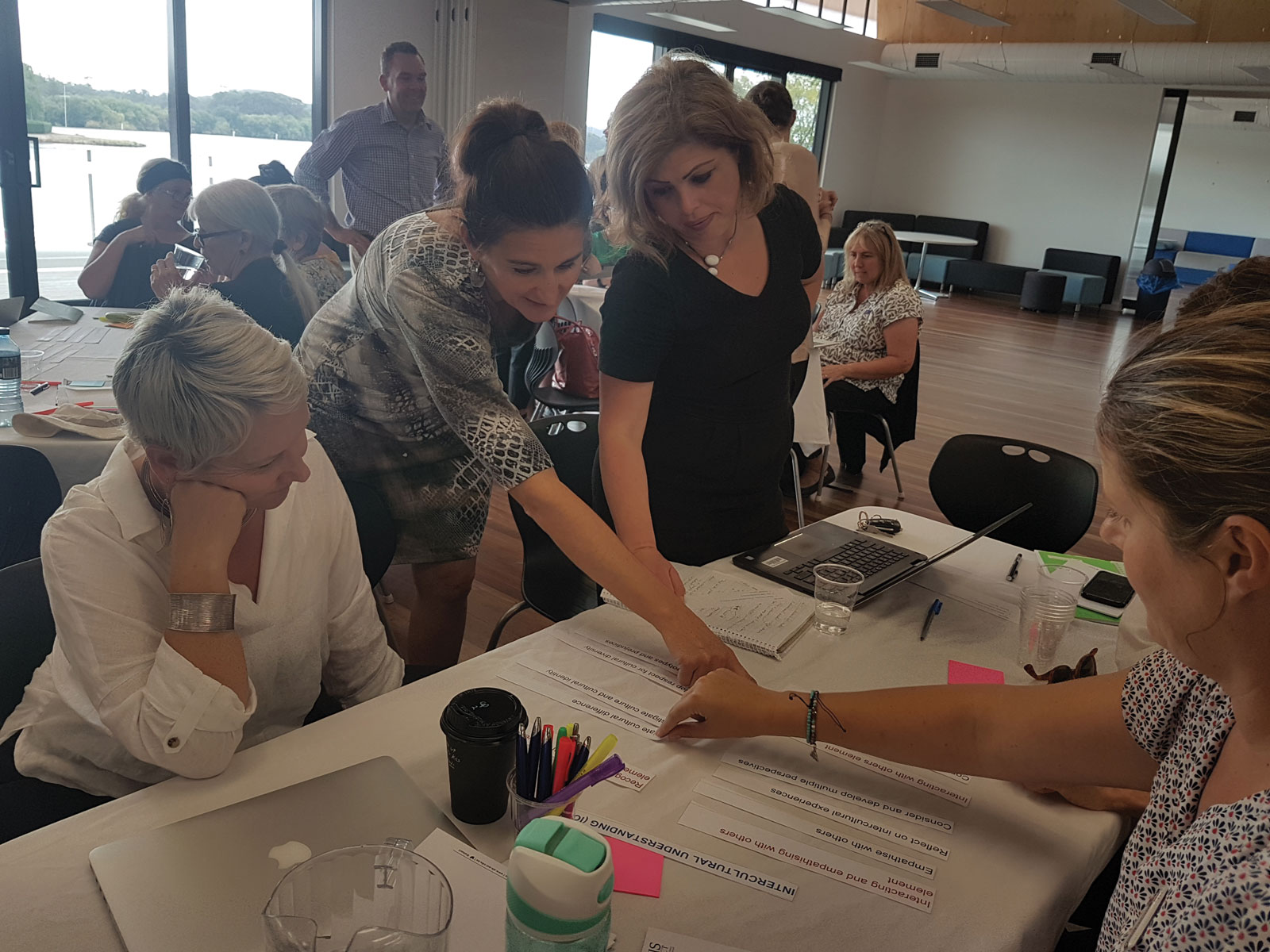


Two workshops, facilitated by Dr Tanya Vaughan (Associate Director, Evidence for Learning) assisted participants to unpack how to structure a change in their school, based on evidence and using the Education Action Plan (EAP). The EAP encourages evidence-informed decision making and the gathering of practice-based evidence. Participants used the EAP as a road map for an improvement journey, answering three important questions:
Schools engaged in this cycle of inquiry throughout 2019, investigating quantitative and qualitative evidence to consider:
I have to say that the time with Tanya was one of the best PD’s of my career. It was great to collaborate with colleagues and learn with and from them. I loved Tanya’s energy and passion for all things teaching and learning and her sense of humour was an added bonus.
The intentional teaching and addressing of the general capabilities is crucial, and is part of a global shift in education.
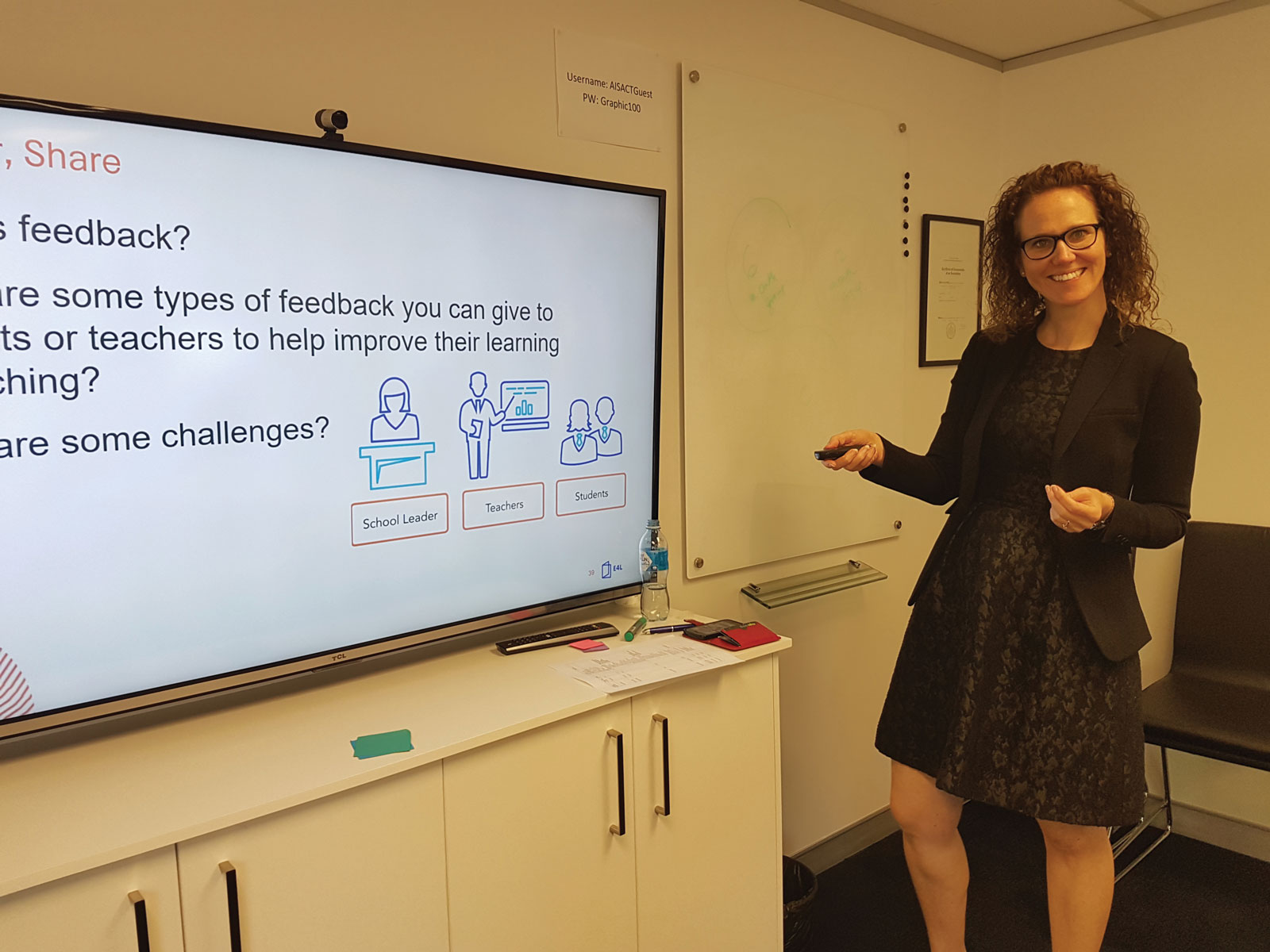

In 2019 AISACT partnered with the Impact Learning Team to design and deliver bespoke workshops to support the teaching of literacy, numeracy and STEM in member schools. A key element of the workshops was familiarisation and engagement with the National Literacy and Numeracy Progressions. A combined total of 554 teachers registered to attend a selection of these 12 TQI accredited workshops delivered throughout the year.
Three workshops provided an in-depth look at writing in the primary school years. They focused on key instructional priorities including the development of a metalanguage for writing, the effectiveness of holistic instruction, instructional routines, the benefits of mapping student progress using the National Literacy Progressions and data driven instruction.
The workshops gave me a great model to use, as well as strategies for engaging all learners in the writing process.
This course focused on key instructional priorities including reading as a thinking process, embedding the reading process within a community of learners, utilising time and feedback through a workshop model, effectiveness of mapping student progress using the National Literacy Progressions, as well as how to inform planning through data collection.
I can now create deeper reading and learning experiences for my students.
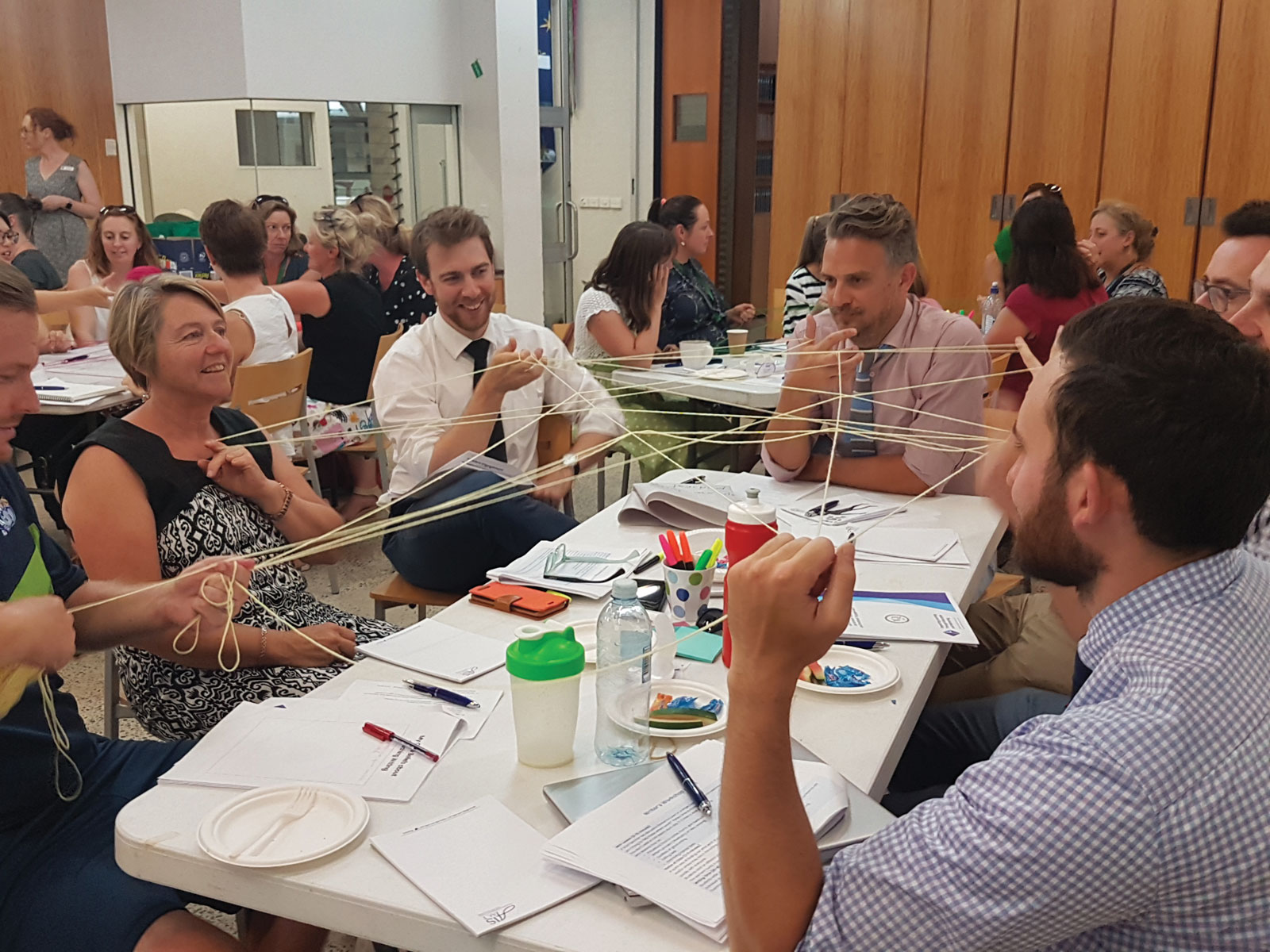
Participants across two workshops were provided with the tools and understanding needed to help secondary students navigate and understand complex texts. Participants explored strategies to support students to organise their thinking, construct meaning in different subjects and purposefully communicate information in an overloaded curriculum. Each workshop incorporated examples, strategies and tips that teachers could use immediately.
I’m looking forward to trying new and more effective ways in which to engage my students with complex texts.
Two workshops provided an in-depth look into numeracy in the primary school years. It considered numeracy as a tool to assist students with learning in all Australian Curriculum areas and the effectiveness of mapping student progress using the National Numeracy Progressions.
Really important understanding of what constitutes numeracy vs mathematics and how to support students to be numerate. Great and thank you!
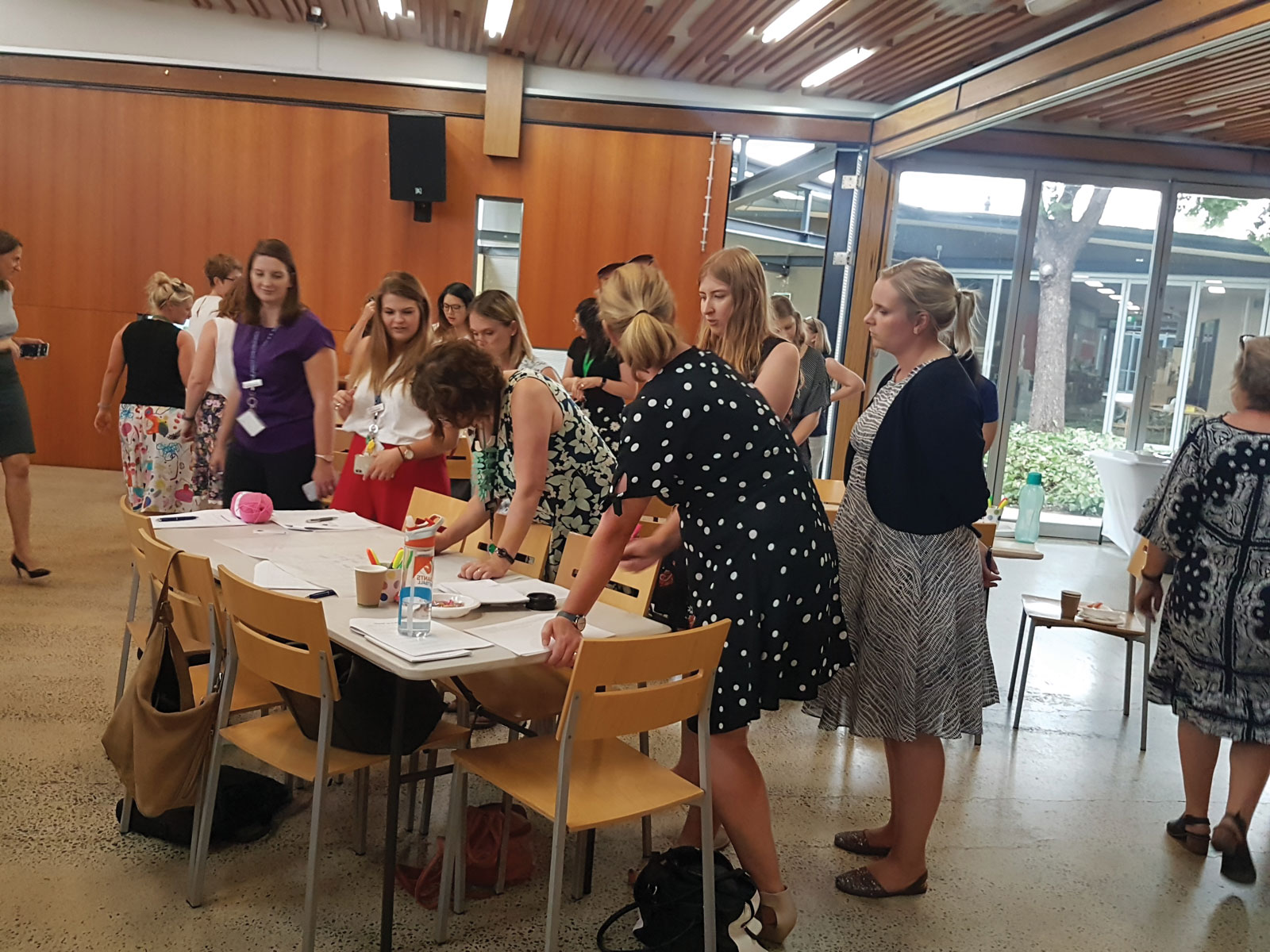

Participants in this course considered how using STEM activities and programming can lessen the workload for teachers. Schools can meet Australian Curriculum achievement standards, help students to reach benchmarks, reduce assessments and marking, all while engaging students in exciting classroom activities.
Increased my capacity to now plan for STEM and Design Process in cross curricular learning.

The inaugural ACT cross-sectoral STEMEd Conference 2019: Future ImpACT was a two day event held on 5- 6 April. The conference was designed for P-12 classroom teachers and school leaders from government and non-government school sectors to learn about leading practice in STEM education and innovative futures learning initiatives. Attended by more than 200 enthusiastic people across the two days, the conference received positive feedback.
Friday events were held concurrently at various locations across Canberra, and provided opportunities for participants to engage in presentations and hands-on experiences in various areas of STEM education. The Saturday workshops, held at the Ann Harding Conference Centre at the University of Canberra, were enhanced by keynotes from Professor Ian Chubb AC (Chief Scientist of Australia 2011-2016), Professor Tom Lowrie (Centenary Professor, University of Canberra), and Professor Joan Leach (the Australian National Centre for Public Awareness of Science).
This event was a partnership between the ACT Education Directorate, the Association of Independent Schools of the ACT (AISACT), Catholic Education, Archdiocese of Canberra and Goulburn, and ACT Teachers Associations including: Science Educators’ Association of the ACT (SEAACT), Design and Technology Teachers’ Association (DATTA), Information Technology Educators ACT (InTEACT), Australian Literacy Educators’ Association (ALEA), and the Canberra Mathematical Association (CMA).
This year AISACT partnered with the Australian Institute of Management Education and Training (AIM) to provide an opportunity for members to access an extensive range of AIM Access public courses. The courses were applicable for both administrative and teaching staff in Member schools and were delivered at the AIM Civic Campus between May to October. 50 participants from Member schools were involved in this initiative, with a total of 91 courses attended over the six month period. The feedback from attendees was extremely positive, lending support to offering a similar opportunity in 2020.
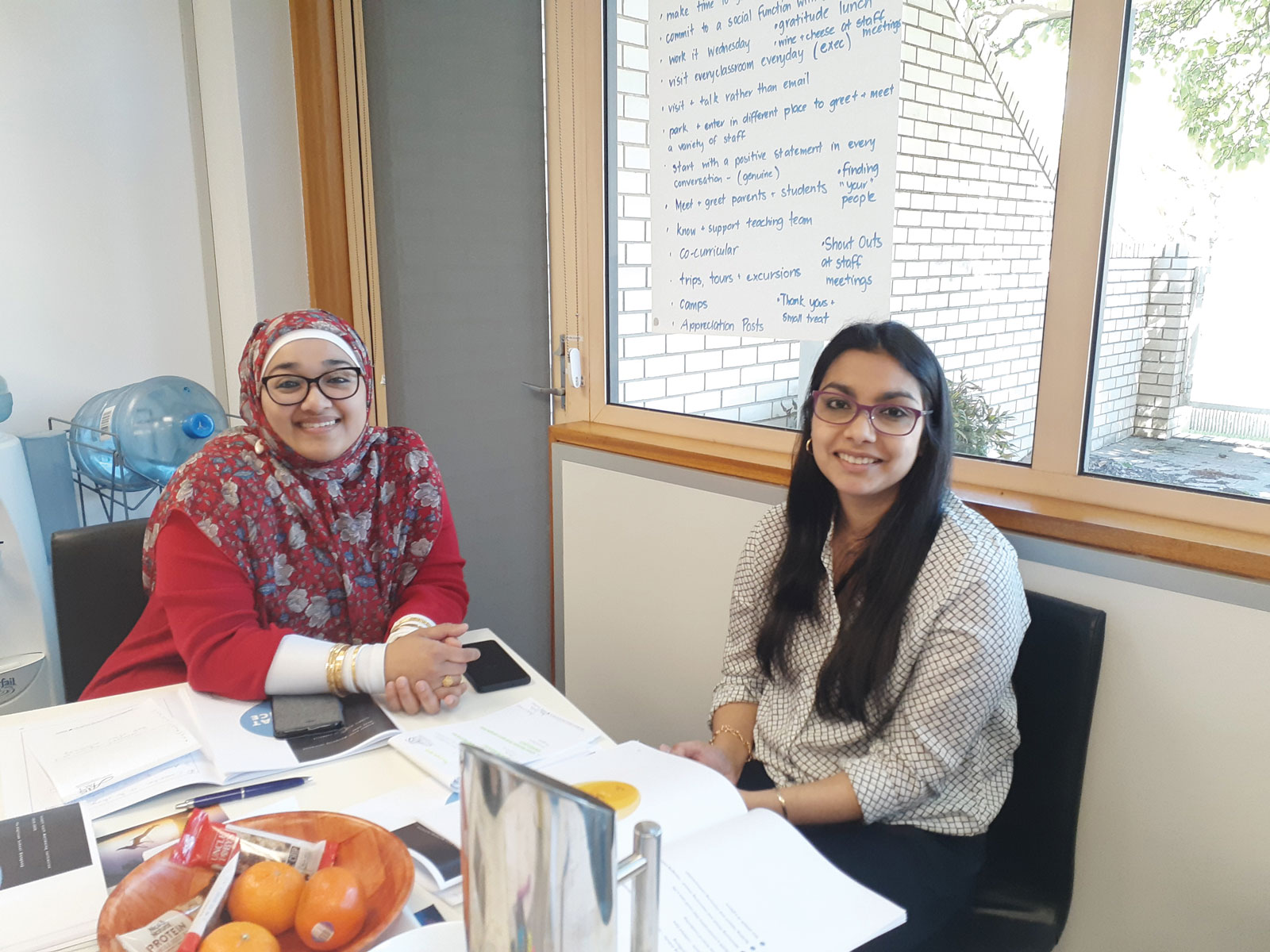

Current research, such as the recently released Global Happiness and Wellbeing Policy Report 2019, posits ‘that one’s wellbeing has a significant role to play in the attraction, retention and sustainability of teachers for the profession. To consider the teachers’ wellbeing is a somewhat new phenomenon across the world as most research to date has focussed on the deficit model and the inhibitors and stressors that contribute to an unwell teacher’. White, M., & McCallum, F. (Ch.5)
Given this context, the Association of Independent schools of the ACT partnered with Exhale People to deliver a bespoke wellbeing program for staff in Member Schools. The program encompasses a two year timeframe in order to create a holistic and sustainable wellbeing solution for staff. Throughout the duration Member schools can expect to gain benchmark data using the Adesso profiling tool, a tailored suite of programs based on developmental preferences, and wellbeing ambassadors in participating schools to drive long-term sustainable results.
The train-the-trainer program is responsive to feedback from the 2019 AISACT Member Survey, specifically in connection to the question, ‘Thinking about the work of the Association into the future, what services and functions would you like to see further developed?’: 72.2% of the respondents selected the option, ‘Providing professional learning to support STAFF wellbeing’, noting that this was the highest percentage accorded all options.
In the pilot program (2019-2020), 20 places for the training of Wellbeing Ambassadors in AISACT schools were offered and participants are now well positioned to continue in 2020 to depth and deploy their skillset in this space.
Organised by the ACT Teacher Quality Institute, this mini-conference was held on the 17 October at the Hedley Beare Centre for Teaching and Learning. Of the eight workshops, two were provided by teachers from AISACT Member Schools.
(Marist College Canberra)
Following the principles of coaching (not mentoring), Marist has introduce a new program for staff development. The focus is on individual teachers and leaders choosing a semester length goal for professional growth. Every two years all staff will be coached by a small team of instructional and middle leader coaches. It is a confidential program directed by the coachee in discussion with their personal coach. Video capture is being used by coachees in the instructional program. The pilot phase is now complete and the full program commenced in semester two.
Tim McNevin, Lisa Hivers and Mel Smith
(Communities@Work Galliee School)
Galilee School’s ‘Coaching Co-design Working Group’ was established to identify our readiness as an organisation to introduce peer coaching into the school. The objective was to establish a peer coaching model that we could use to enhance practice across all areas of the school. We believe that peer coaching can offer ‘an avenue to develop a collaborative workplace where staff members interact freely to address curriculum and instruction, observe and teach each other, develop and analyse materials, plan, and solve problems together. The outcomes of such endeavours are marked by enhanced student performance; dedicated, energised professionals; and a stimulating workplace.’ (Robbins 1991).
The 2019 AISACT Celebrating Teaching and Learning event, now in its fifth iteration, was again a wonderful opportunity to hear about and discuss the extensive range of teaching and learning projects and programs that have occurred in AISACT Member Schools throughout the year. East Hotel was again the preferred venue for this event which provided an opportunity for many teachers from AISACT Member Schools to present and celebrate the successes enjoyed, challenges met and lessons learned.
Presentation topics:
The structure of the program provides an opportunity for educators to see a snapshot of best practice in many different schools. The event is an excellent way of being informed of the Action Plans and the diverse range of programs being taught in ACT schools; it is fabulous. I am looking forward to future conferences. Thank you.
Gaining insights into the various approaches different schools are using in teaching and learning was exciting. Having the students present their research projects was fabulous and provided an opportunity to hear about the learning journey from a student’s perspective, great idea!

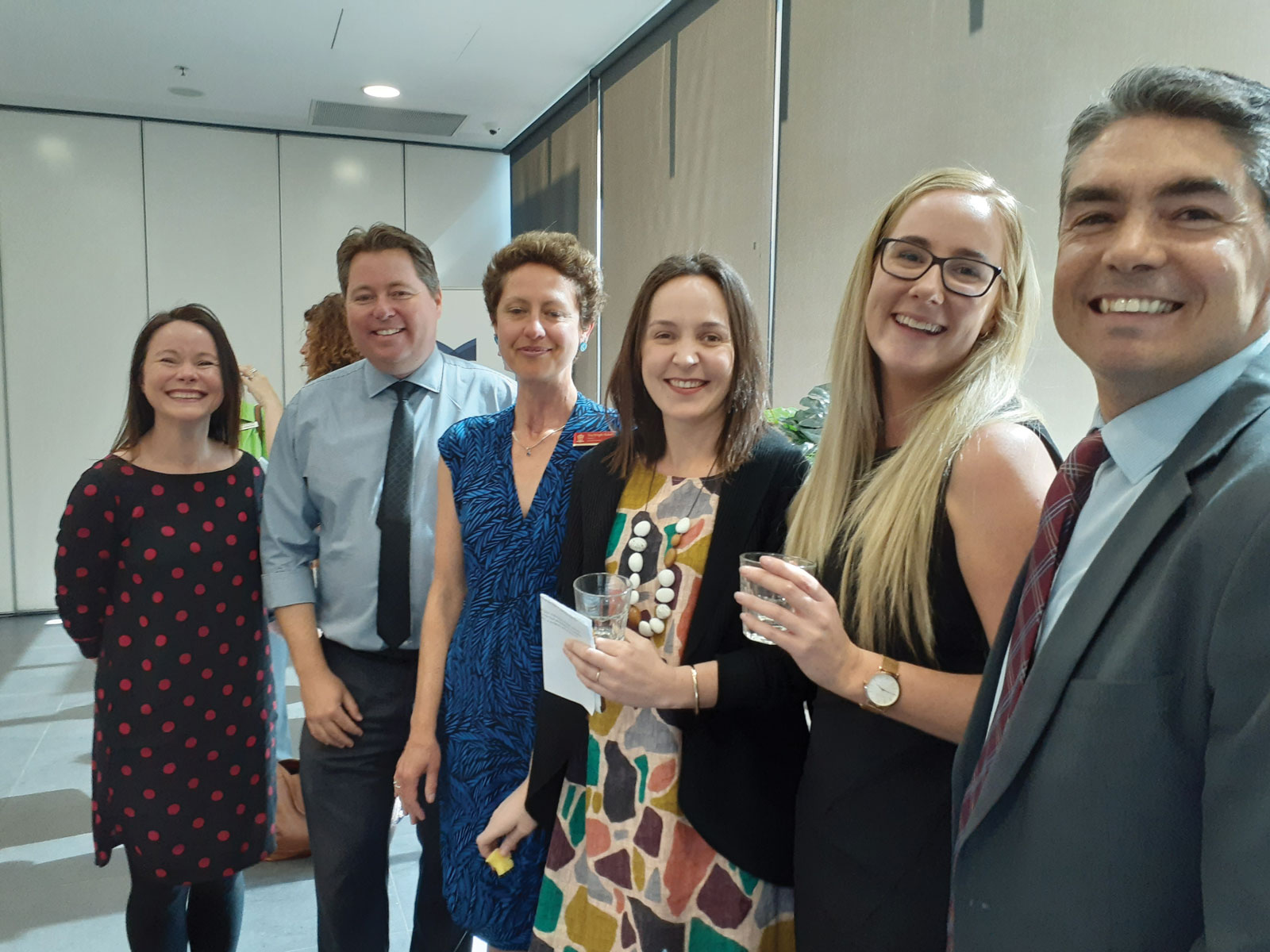
The Association of Independent Schools (ACT), together with the ACT Education Directorate and Catholic Education, provided two focus groups (May 21, May 23) for teachers to contribute to the ACT’s response to ACARA’s 2019 Monitoring the Australian Curriculum Report. Additional input was gathered through an online survey, contributing to an informative 2019 submission from the ACT education community. The 2019 submission cab be accessed on the AISACT website.
An ongoing focus for the Australian Curriculum Assessment and Reporting Authority (ACARA) is the publishing and updating of portfolios of student work as a resource to support teachers in planning and implementing the Australian Curriculum: Foundation to Year 10. 29 teachers from seven of our Member schools accepted an invitation from ACARA to attend the ACT Work Samples workshop (May 10), in turn, contributing to the creation of annotated illustrations of practice. Denise Roberts, ACARA Curriculum Specialist, English, provided feedback stating, ‘we [ACARA Curriculum Specialists] were thrilled with the level of engagement and enthusiasm from the AISACT teachers and we are certain that we will receive some wonderful work samples from them.

The AISACT Leadership Breakfast Series has been established by the Association to engage school leaders across the ACT, irrespective of schooling sector, in issues of significance and importance in the education sphere; specifically, lessons in leadership as delivered by guest speakers, and how these lessons may be transferred to schools to enhance the learning achievements of all students.
The challenges for leadership in educational settings are numerous, and school leaders increasingly look beyond their own environments to learn more and improve their leadership capacity. In organising the breakfast series the speakers are not necessarily part of the regular education speaking circuit. Rather, their expertise in leadership, and their leadership journey, provide transferable lessons in leadership for educators across Canberra.
Invitations to attend the breakfasts are extended to all schools in the ACT.
The speakers in this year’s series were:
School of Education The University of Adelaide
Associate Professor Mathew White is a member of the School of Education’s Leadership Team and the Program Director for the Master of Education at the University of Adelaide. He is a Principal Honorary Fellow in Melbourne Graduate School of Education and an Associate Professor at the University of Melbourne.
Professor Emeritus, University of Melbourne
Professor Dinham was appointed as Foundation Chair of Teacher Education and Director of Learning and Teaching in the Graduate School of Education, University of Melbourne, and was appointed Professor Emeritus in 2018.
A Fellow of ACE, ACEL and AIM, Stephen was awarded the Medal of the Order of Australia (OAM) in 2011 for service to educational research and to professional associations. He has conducted a wide range of research projects in the areas of educational leadership and change, effective pedagogy/quality teaching and is a frequent presenter at various international, national and state conferences.
Diane Joseph is a public policy expert with significant experience in the education and training sectors. As Chair of the Board for Education Services Australia (ESA) Diane continues to contribute to national education reform. She is a Director for the Australian Council for Educational Leadership (ACEL) and has previously served as Chair of the Senior Officials Group for the COAG Education Council, a Director of the Australian Institute for Teaching and School Leadership (AITSL), Member of the Canberra Institute of Technology Governing Board, and Board Member of the ACT Teacher Quality Institute. Diane now works as an independent consultant providing expertise to individuals and organisations. She delivers executive performance coaching, facilitates strategic planning, leadership development, and organisational capacity building.
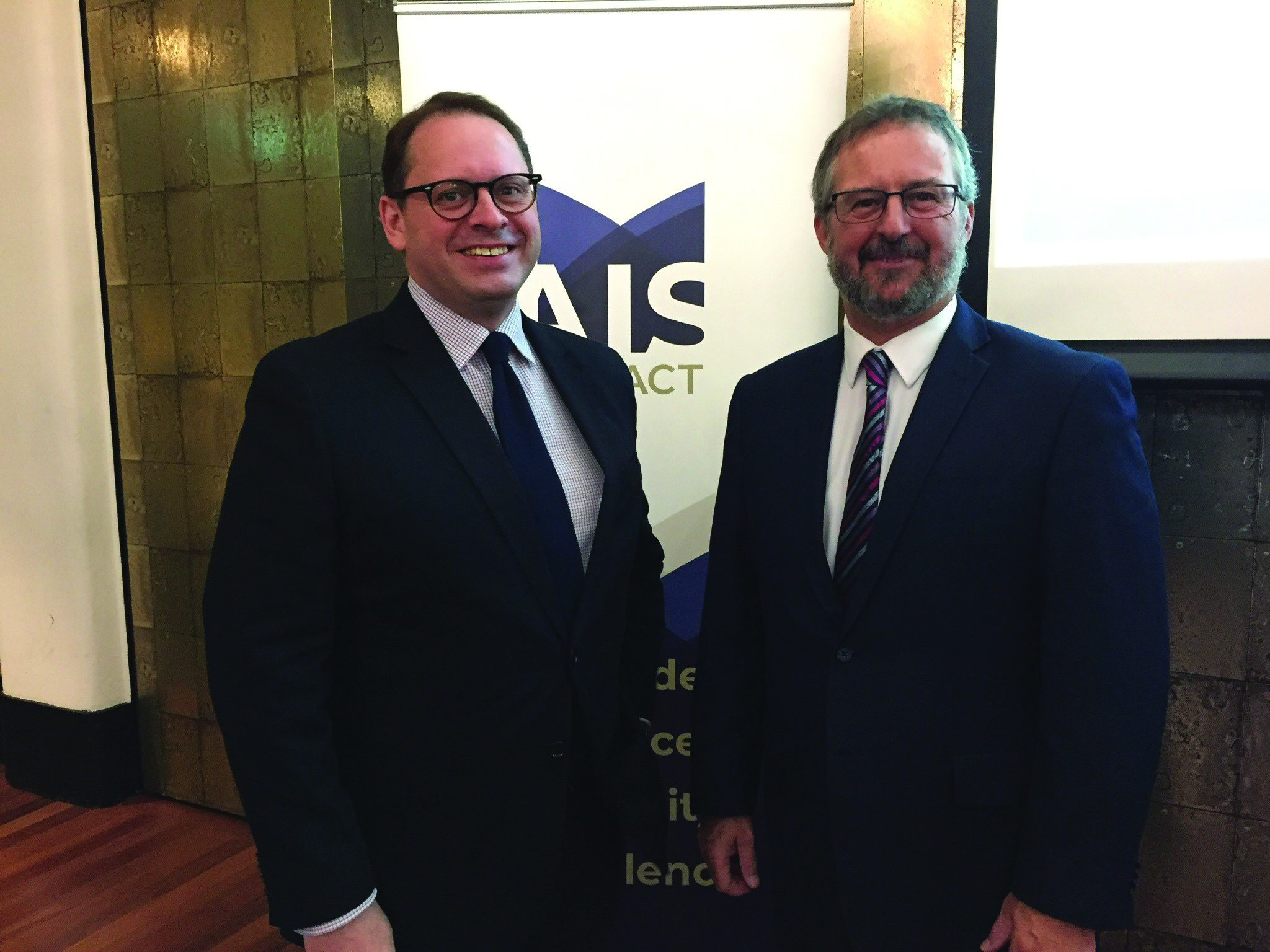


The AISACT 2019 Colloquium provided an opportunity for educators from across the ACT Education Community to explore the emergent phenomenon of coaching in education. Instructional coaching is increasingly recognised as a key ingredient in school improvement and an important way to build teaching and learning capacity, develop leadership skills, and ultimately improve student outcomes.




Jim Knight
Senior Partner of Instructional Coaching Group ICG.
Jim is a research associate at the University of Kansas Center for Research on Learning. He has spent more than a decade studying instructional coaching, writing several books on the topic. Jim’s articles on instructional coaching have been included in publications such as The Journal of Staff Development, Principal Leadership, The School Administrator, and Teachers Teaching Teachers. Jim directs several research projects, including Pathways to Success, a comprehensive, district-wide school reform project in the Topeka, Kansas, School District. Jim also leads the coaching institutes and the Teaching, Learning, Coaching annual conference. Jim has presented and consulted in more than 40 states, most Canadian provinces, and around the world. He has also won several university teaching, innovation, and service awards.
Chris Munro
Director VIC/TAS
Chris is passionate about teacher growth and leadership, and the powerful catalysing role that coaching can play. He has extensive experience in supporting and leading the development of teachers and school leaders, drawn from over 25 years of working in Government and Independent schools and in Higher Education. Chris has also performed advisory roles for the Scottish Qualifications Authority, Local Government Education Department and Her Majesty’s Inspectorate of Education (HMIE) in Scotland. Since relocating to Australia in 2010, Chris has applied his extensive experience to the leadership of professional learning strategy and the development of school coaching models.



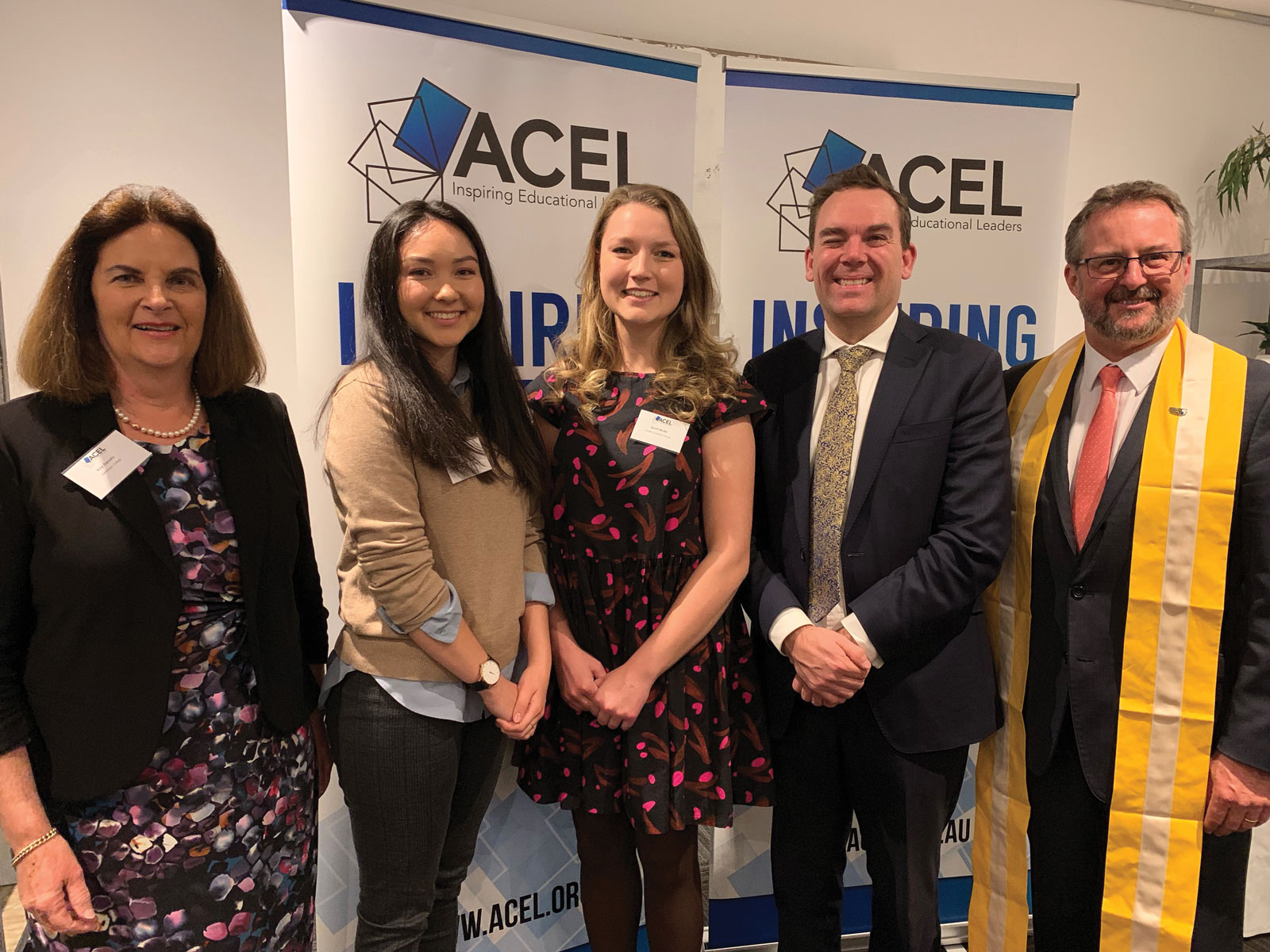
The Association welcomed guests, Board Members and staff from Member Schools to the AISACT Annual Cocktail Event held at the National Portrait Gallery on Friday 15 November 2019. The event provided attendees with the opportunity to celebrate the work of the Association in 2019.
Guests included the ACT Minister for Education and Early Childhood ,Ms Yvette Berry MLA, Leader of the Opposition Mr Alastair Coe, Deputy Leader of the Opposition Ms Nicole Lawder, Shadow Minister for Education Ms Elizabeth Lee, ACT Greens Mr Shane Rattenbury and MLA’s Ms Vicki Dunn, Mr Andrew Wall, Ms Elizabeth Kikkert and Ms Candice Burch. In addition the Federal Member for Canberra’s newest seat (Bean) Mr David Smith.
During the evening departing Members of the ACT were farewelled by the Chair Ms Rita Daniels, who sincerely thanked them for their work and contributions to the Association and of course to their schools. Leaving us this year were: Ms Christine Lucas, Principal Brindabella Christian College; Ms Asma Ahmad, Principal Taqwa School; Mr Anthony Vandermolen, Principal Canberra Montessori School; and Mr Siddiq Buckey Principal Islamic School of Canberra.
Each year at this event the Award for Leadership and Excellence in ACT Independent Education is awarded. The award recognises an individual who, in the opinion of the members, best met the Association’s mission of “Excellence in ACT Independent education”. This year’s recipient of the award is Ms Penny (Brown) Freestone. Penny in the last 8 years has been instrumental in assisting the growth of the independent schools sector in ACT in her role as Executive Officer of the ACT BGA. Schools who have made applications for either Territory and Commonwealth Capital Grants or ACT Pre School or Better Schools for our Kids, have found Penny to be collegial, inclusive, measured and helpful. She has gone out her way to ensure a fair and equitable process for grant allocations and has given informative and frank advice especially where schools have been unsuccessful in their applications. As Penny moves on from the ACT BGA into the next phase of her career it is an opportune time as leaders in ACT Education to acknowledge her very valuable contribution in fulfilling AISACT’s mission in advancing independent education in our region.
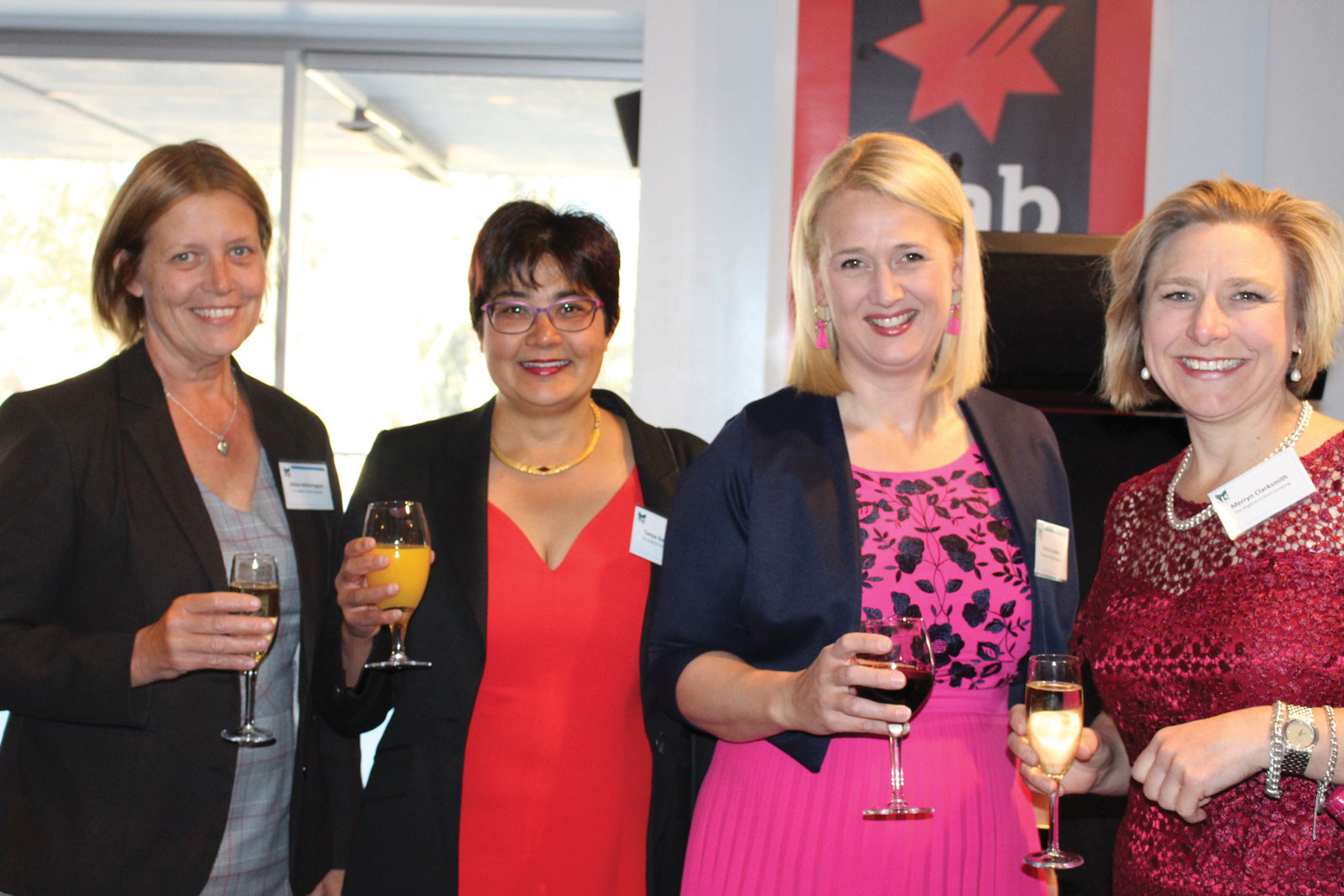
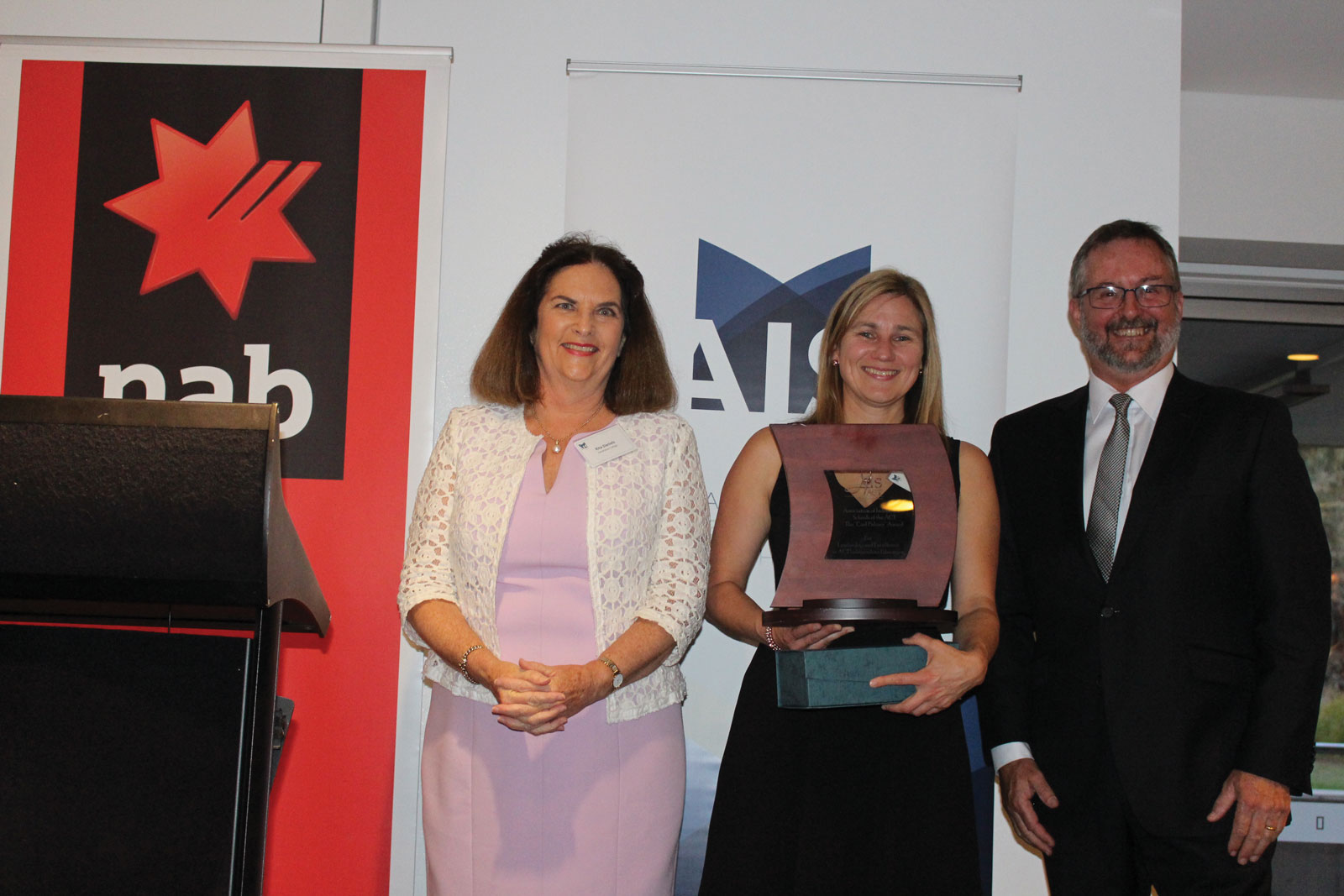


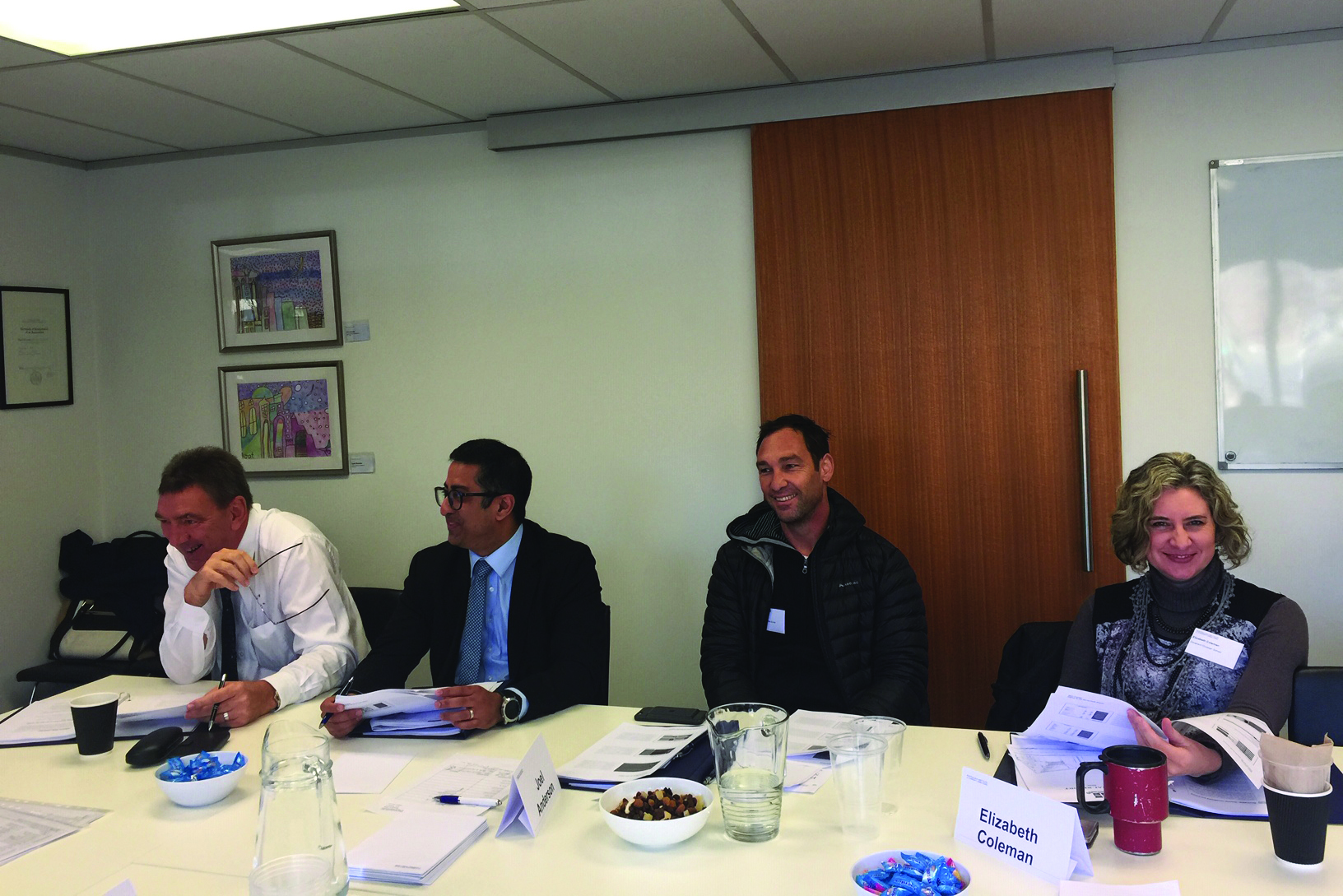
ABN: 51 980 437 786
| Note |
2019 $ |
2018 $ |
|
|---|---|---|---|
| Income | |||
| Interest income | 20,092 | 28,570 | |
| Funded programs | 1(a), 2 | - | 109,512 |
| Other income | 6,280 | 18,556 | |
| Program administration | 12,135 | 12,168 | |
| Services to schools | 1(a), 2 | - | 371,862 |
| Student first support fund | - | 68,404 | |
| Subscriptions | 337,691 | 275,906 | |
| Reform support fund | 506,135 | 461,000 | |
| 882,333 | 1,345,978 | ||
| Expenses | |||
| Administration and office expenses | 51,667 | 55,838 | |
| Amortisation - right of use asset | 9 | 35,213 | - |
| Consultancy and legal | 7,785 | 5,701 | |
| Depreciation | 16,424 | 17,549 | |
| Employee benefits expense | 584,216 | 574,309 | |
| Finance expense | 1(a) | 7,666 | - |
| Funded programs | 1(a), 2 | - | 109,512 |
| IT expenses | 5,948 | 14,755 | |
| Other expenses | 9,301 | 179,935 | |
| Projects | 194,767 | 55,278 | |
| Rent and equipment lease | 1(a) | 3,153 | 39,929 |
| Services to schools | 1(a), 2 | - | 371,861 |
| Subscriptions | 48,821 | 48,403 | |
| Travel - domestic | 11,084 | 16,129 | |
| 976,045 | 1,489,199 | ||
| (Deficit) for the year | (93,712) | (143,221) | |
| Total comprehensive (loss) for the year | (93,712) | (143,221) |

Blue Gum Community School
Brindabella Christian College
Burgmann Anglican School
Canberra Christian School
Canberra Girls Grammar School
Canberra Grammar School
Canberra Montessori School
Covenant Christian School
Daramalan College
Emmaus Christian School
Galilee School
Islamic School of Canberra
Marist College Canberra
Orana Steiner School
Radford College
St Edmund’s College
Taqwa School
Trinity Christian School
The Anglican School Googong
Snowy Mountains Grammar School
Maureen Hartung OAM
Blue Gum Community School
Christine Lucas (Term 1 – 3), Suzanne Power ( Term 4)
Brindabella Christian College
Steven Bowers, Joel Anderson
Burgmann Anglican School
Bree Hills
Canberra Christian School
Anna Owen, Matt O’Brien
Canberra Girls Grammar School
Dr Justin Garrick, Kent Peters
Canberra Grammar School
Anthony Vandermolen, Rael Matthews, Kate Luck
Canberra Montessori School
Martin Keast, Tim James
Covenant Christian School
Rita Daniels, Hugh Boulter
Daramalan College
Erik Hofsink, Charlotte Kruger
Emmaus Christian School
Tim McNevin
Galilee School
David Johns
Islamic School of Canberra
Matthew Hutchison, Christine Worth
Marist College Canberra
Jacqui Lee, Peter Shipp ( Term 1 – 3 )
Orana Steiner School
Fiona Godfrey, Simon Wallace
Radford College
Joe Zavone, Samantha Brady
St Edmund’s College
Asma Ahmad , Amanda Bartels, Talib Sanoon
Taqwa School
Ian Hewitt, Karen Achurch
Trinity Christian School
Merryn Clarksmith, Heather Walsh
The Anglican School, Googong
Andrew Bell, Liz Heath
Snowy Mountains Grammar School
Rita Daniels (Chair)
Daramalan College
Dr Justin Garrick (Deputy Chair)
Canberra Grammar School
Steven Bowers (Immediate Past Chair)
Burgmann Anglican School
Heather Walsh
The Anglican School, Googong
Christine Worth
Marist College Canberra
Samantha Brady
St Edmund’s College, Canberra
Erik Hofsink
mmaus Christian School
Maureen Hartung OAM
Blue Gum Community School
Ian Hewitt
Trinity Christian School
Andrew Wrigley
AISACT
Heather Walsh (Chair)
The Anglican School Googong
Christine Worth
Marist College Canberra
David Holmesby
Karen Achurch
Trinity Christian School
Tim James
Covenant Christian School
Charlotte Kruger
Emmaus Christian School
Andrew Wrigley
AISACT
Serita Cordeiro
AISACT
Erik Hofsink (Chair)
Emmaus Christian School
Liam Stakelum
Marist College Canberra
Naomi Cole
Trinity Christian School
Lisa Hivers
Galilee School
Chris De Britt
Daramalan College
Alison Easey
Burgmann Anglican School
Luke Willsmore
Emmaus Christian School
Marianne Geoghegan
St Edmund’s College
Louise Wallace Richards
Radford College
Rael Matthews
Orana Steiner School
Jane O’Brien
Canberra Girls Grammar School
Sarah Trotter
Canberra Girls Grammar School
Karen Maher
Radford College
Joanna Leaman
Canberra Grammar School
Kath Morwitch
AISACT
Joanne Garrisson
AISACT
Ian Hewitt (Chair)
Trinity Christian School
Grant Barclay
Marist College Canberra
Leonie Owens
St Edmund’s College
Kerry-Anne Kwong
Canberra Girls Grammar
Michelle Woodward
Brindabella Christian College
Jenny Ward
Trinity Christian School
Cath Amesbury
Burgmann Anglican School
Andrew Wrigley
AISACT
Joanne Garrisson
AISACT
Sue Roche
AISACT
Maureen Hartung OAM
Blue Gum Community School, Chair
Subhadra Chapman
Blue Gum Community School
Kathe Columbine
Canberra Girls Grammar School
Karen Mahar
Radford College
Andrew Wrigley
AISACT
Joanne Garrisson
AISACT
Andrew Wrigley
Executive Director
Joanne Garrisson
Senior Manager Strategic Programs
Kath Morwitch
Senior Manager Curriculum and Professional Development
Sue Roche
Manager, Education Support
Serita Cordeiro
Finance Officer/Office Manager